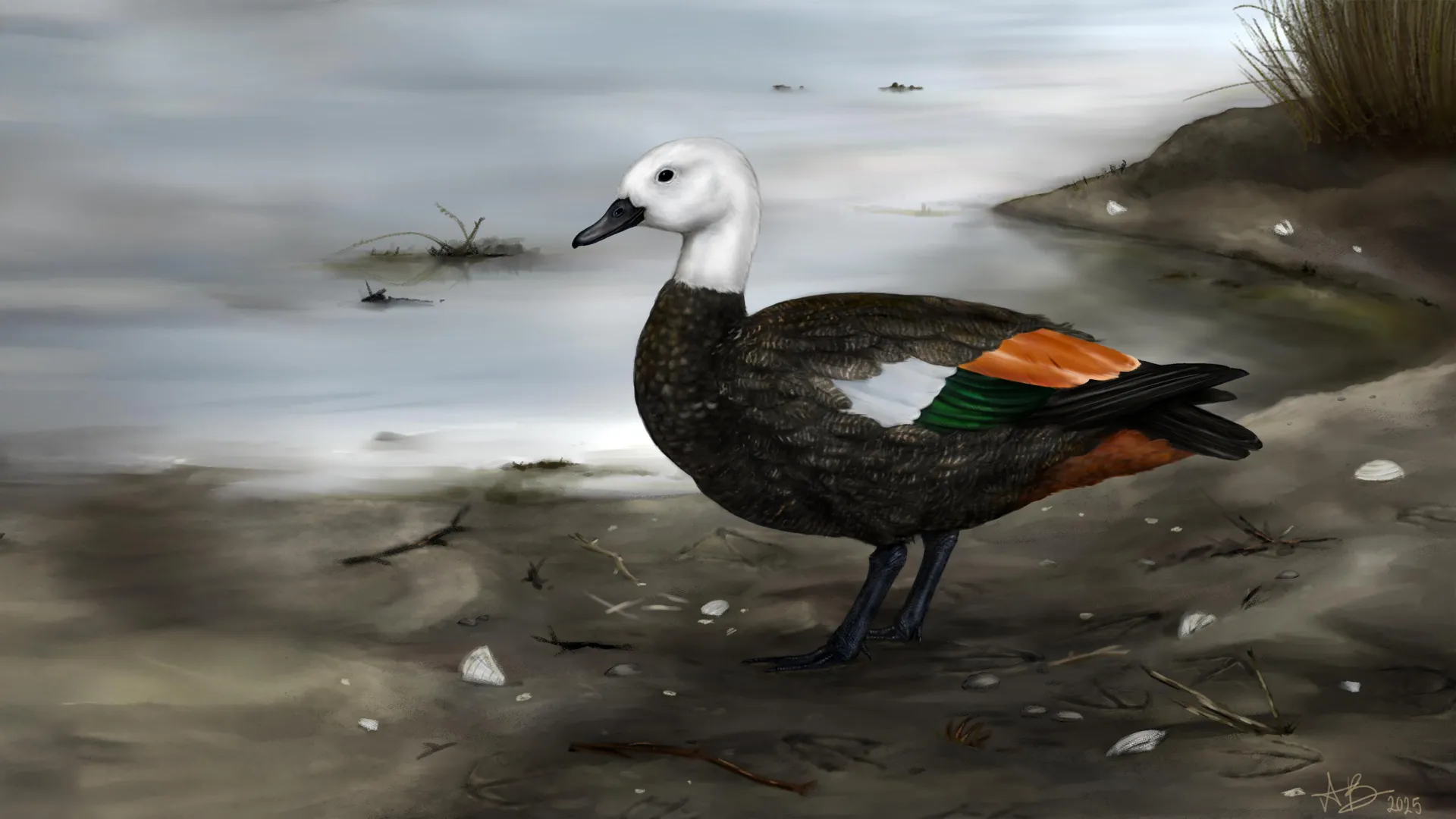Now Reading: Scientists Discover Rare Shelduck Species That Walks Instead of Flying
-
01
Scientists Discover Rare Shelduck Species That Walks Instead of Flying
Scientists Discover Rare Shelduck Species That Walks Instead of Flying

Rapid Summary
- university of Otago researchers have discovered a new extinct shelduck, named Tadorna rekohu (Rēkohu shelduck), from New Zealand’s Rēkohu Chatham Islands.
- The species evolved from its ancestors that arrived on the islands about 390,000 years ago.
- the Rēkohu shelduck developed shorter wings and longer legs due to environmental factors such as abundant food, lack of predators, and windy conditions.
- These adaptations made the bird less reliant on flying and better suited for ground living.
- Researchers used ancient DNA analysis and bone morphology to identify that it is closely related to New Zealand’s pūtangitangi paradise shelduck (Tadorna variegata).
- the Rēkohu shelduck went extinct before the 19th century due to over-hunting and predation following human settlement on the islands.
- The species discovery underscores how isolated environments can drive rapid evolutionary changes in animal species over relatively short geological periods.
- Hokotehi Moriori Trust partnered in the study, naming the bird after their ancestral connection with Rēkohu Chatham Islands.
- The study was published in the Zoological Journal of the Linnean Society through collaboration between institutions in New Zealand and Australia.
Indian Opinion Analysis
The discovery of Tadorna rekohu showcases how environmental factors influence adaptive evolution-a phenomenon relevant worldwide, including India.In a diverse ecology like India’s, which spans high-altitude habitats to tropical wetlands, understanding these evolutionary drivers can improve conservation strategies for native wildlife facing habitat modifications.
India’s parallels include endemic species such as house sparrows adapting behaviorally or physically based on urbanization pressures. Moreover, studying extinction timelines-paralleling threats like hunting or invasive predation seen with this extinct species-can offer lessons reinforcing policies under India’s Wildlife Protection Act.
The collaborative approach involving indigenous knowledge reinforces broader ecological stewardship principles gaining traction globally. For instance, integrating community stakeholders has been crucial even within India’s biodiversity-rich states like Arunachal Pradesh or kerala.This case serves as another reminder of balancing development while safeguarding ecosystems-a principle that nations globally must reflect upon carefully.

























